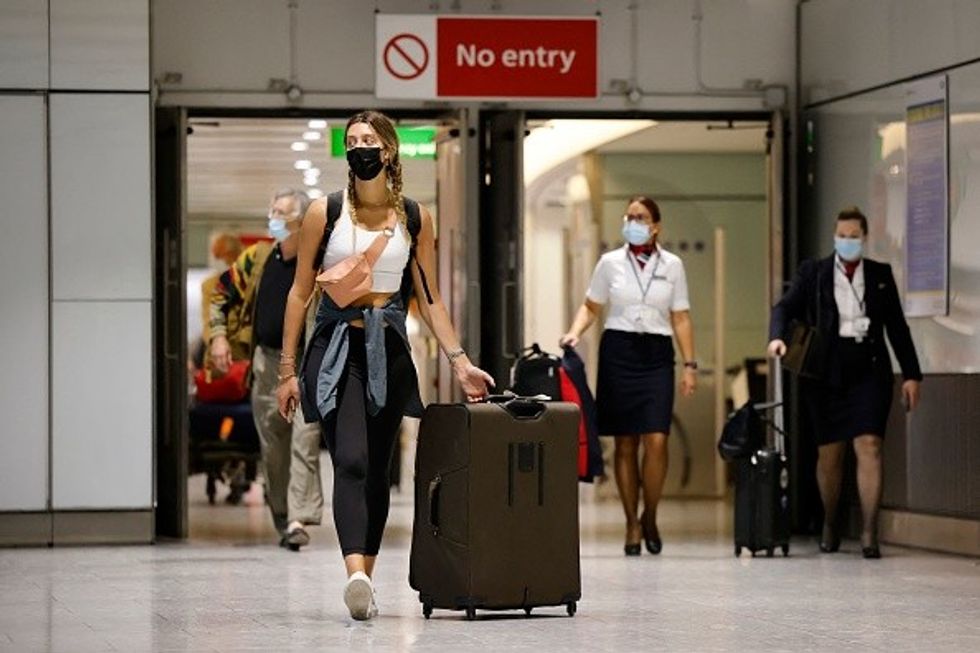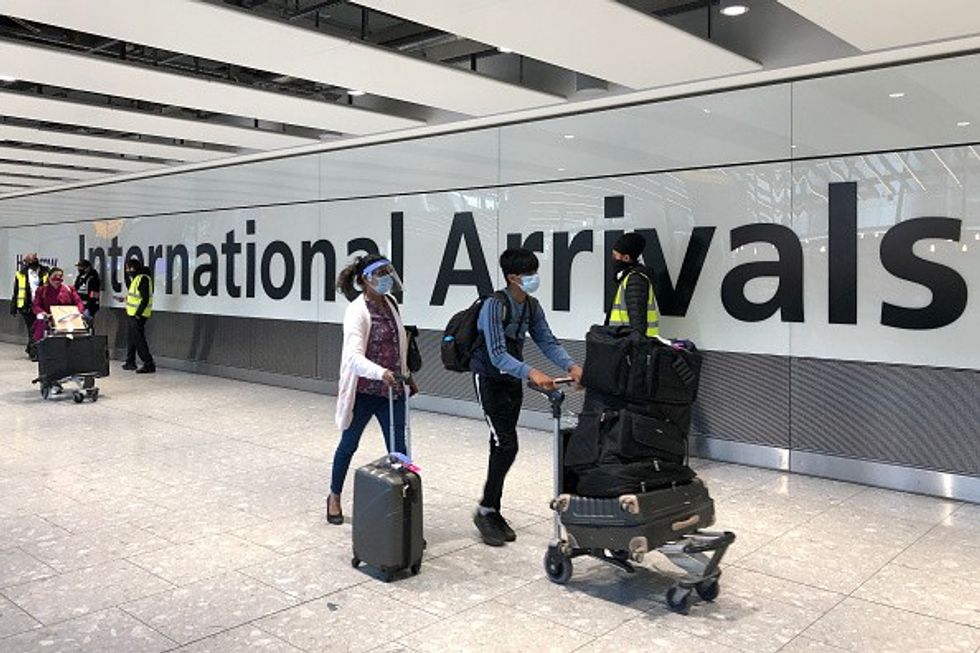PASSENGERS travelling from India to the UK have been asked to check fares on airline websites after it emerged that a one-way ticket to London in economy ranged between £980 and £1,360.
The advisory from India’s aviation regulator, the Directorate General of Civil Aviation (DGCA), came on Tuesday (10) as reports last weekend suggested a steep hike in airfares after the UK government moved India from the red list to amber.
This means an adult passenger arriving in the UK from India does not have to pay £2,285 for 10 days-quarantine in a hotel.
Reports of the fare hike made headlines when an official at India’s home ministry, Sanjeev Gupta, last Saturday (7) posted on social media that an economy-class one-way ticket on British Airways’ Delhi-London flight for August 26 was touching almost £4,000.
However, India’s ministry of civil aviation denied the official’s claims, insisting instead that the fare during August ranged between £980 to £1,360, which is more than double that of pre-pandemic fares.
“The fares offered on the Delhi-London sector (economy class) range from Rs 1.03 lakh-Rs1.21 lakh for Indian carriers and Rs 1.28lakh - Rs 1.47 lakh for UK carriers for travel during August 2021,” the ministry tweeted last Sunday (8).
Responding to Sanjeev’s claim, Air India tweeted the same day that the current fares available on its "official website for Delhi London sector is approximately 1.15 L (£115)”.
As the UK eased travel restrictions last week, thousands of travellers in India, who scrambled to book their tickets to the UK, were taken aback by the unexpectedly high prices.
Currently, four airlines that operate direct flights between India and the UK are Vistara, Air India, British Airways and Virgin Atlantic.
A one-way ticket from Delhi to London in the economy, which used to cost between £500 and £780, is now priced between £1,200 and £1,500.
Shakti Gupta from Delhi-based travel and ticketing agency, Travelmagic, told Eastern Eye that reports of fares for travel from Delhi to London touching £4,000 are a case of “over-exaggeration”. However, Gupta admitted that economy class airfares have indeed doubled and, in some cases, trebled when compared to fares before the pandemic.
He noted a huge rush of Indian students flying to England ahead of the start of the academic year at universities.
Saurabh Tiwari from Delhi-based Sushant Travels also acknowledged the price rise, saying due to high prices, most travellers from India are not making any plans for now and only students are bearing the brunt as they have no other option.

Nishant Pitti, CEO and co-founder of Ease My Trip, an online booking agent, also said there has been an increase in the average economy fares for international travel in August when compared to fares in July.
"Recently, a large number of countries have eased their travel restrictions for Indian citizens, which has steadily increased demand for travel as there is a huge pent-up travel demand," he said, adding that rising fuel costs also contributed to the increase in airfare.
The DGCA last Sunday (8) asked airlines to submit details about how much they charge for airfares from India to the UK, though the move has been sidelined by industry stakeholders.
“International airfares are neither regulated nor monitored as they are dependent on demand and supply,” a local media outlet quoted a senior airline official.
On Tuesday, the aviation regulator said, “Passengers travelling to international destinations are requested to check the fare preferably from the website of the concerned airline as the metasearch engines at times do not reflect the actual point to point fare and do make combinations of multiple airlines and end up with an exaggerated figure.”
While airfares before the pandemic depended on the date and class of travel, passengers now may have to shell out more due to rising fuel costs and limited supply.
As of now, only 15 flights are permitted between India and the UK per week, leading to a hike in demand and hence, steep fares, claimed Vistara.
“Pricing is always a function of supply and demand. There are only 15 flights a week allowed currently on the India-UK route for Indian carriers and when there is relaxation and more capacity allowed, it will automatically bring down prices,” Vistara Spokesperson told Eastern Eye responding to the unexpectedly high airfares.
Also, most of the seats got quickly filled up due to “pent-up demand” when the UK lifted restrictions – these could have been passengers who booked their tickets but could not travel due to the restrictions of India being on the red list. However, after India moved to the amber list, most of the lowest-costing economy seats got booked on almost all regular flights from India to the UK.
“Only upper bucket economy and business class seats are available now and hence the fares dynamics are on a higher side,” tweeted state carrier Air India. It is expected to have 16 weekly flights from India to the UK from Monday (16), at par with pre-pandemic times.
Overall, a combination of four factors - limited weekly flights, pent-up demand, students rushing to travel in time for universities to reopen for a new academic year and a requirement to travel non-stop due to the current rules - has led to spiralling fares, reports said.
“Generally, even pre-covid, July and August have always been very expensive to fly because these are peak dates for flights anywhere in the world. If you look at mid/late September onwards, the fares may come down. The pent-up demand is very high compared to the capacity the airlines have put in,” Jaymin Borkhatria of Southall Travel told Eastern Eye.
Travel agents in the UK have also admitted a rise in fares in August, although that hike in UK-India flights is comparatively less than the almost 200 per cent rise in airfares from India to the UK.
An average fare from London to Delhi was anywhere between £361 and £500, while a similar class fare from Delhi to London can cost between £1,200 and £1,500.
Many Indian travel agents, like Shakti, noted that the disparity in prices is unprecedented and unlike anything seen before the pandemic.

Scheduled international passenger flights have been suspended in India since March 23 last year amid the coronavirus pandemic and limited special international passenger flights have been operating since July 2020 under the air bubble arrangements formed with 28 countries, including the UK.
Following the announcement by the UK government last week, post-Sunday (8), fully vaccinated passengers from India will no longer have to compulsorily undergo 10-day hotel quarantine though they still have to quarantine for 10 days at the place of their stay in the country.
Shakti said many Indian travellers are not yet clear about what is required of them and he added that social media users are only adding to the confusion with false and unverified claims.
Another travel agent confirmed this was the case and said some travel companies were “cashing in on the situation”.
Industry experts said airfares are likely to remain high as long as the current “slashed weekly limit” of direct flights between India and the UK continues.



















 Damian Talbot
Damian Talbot